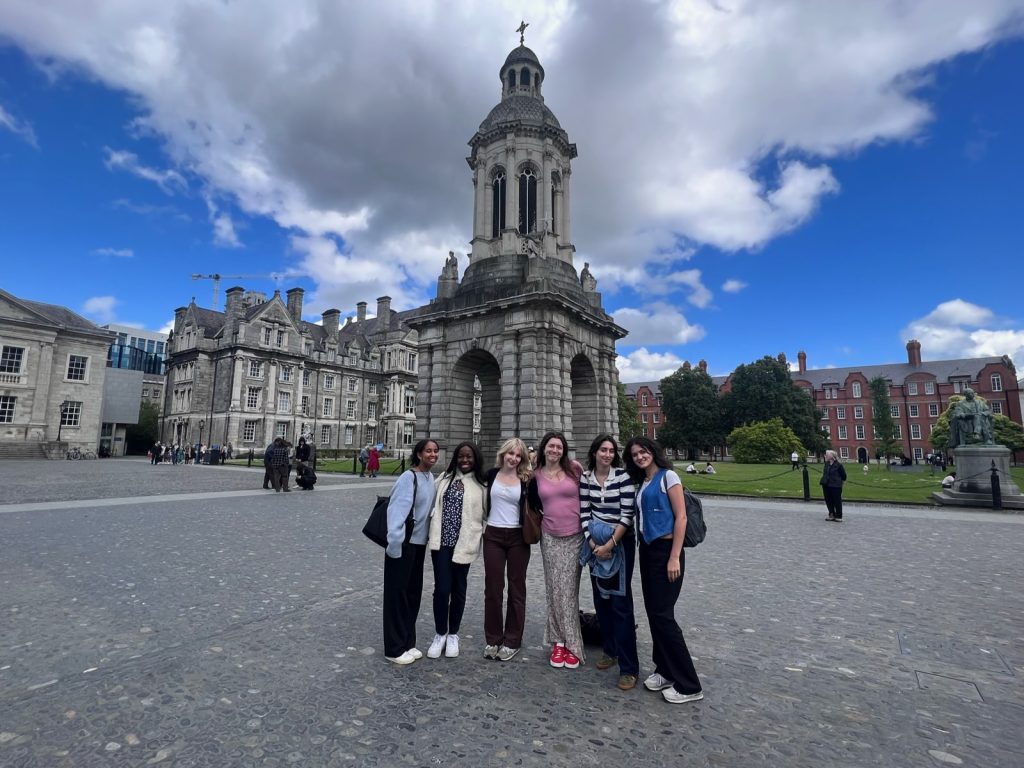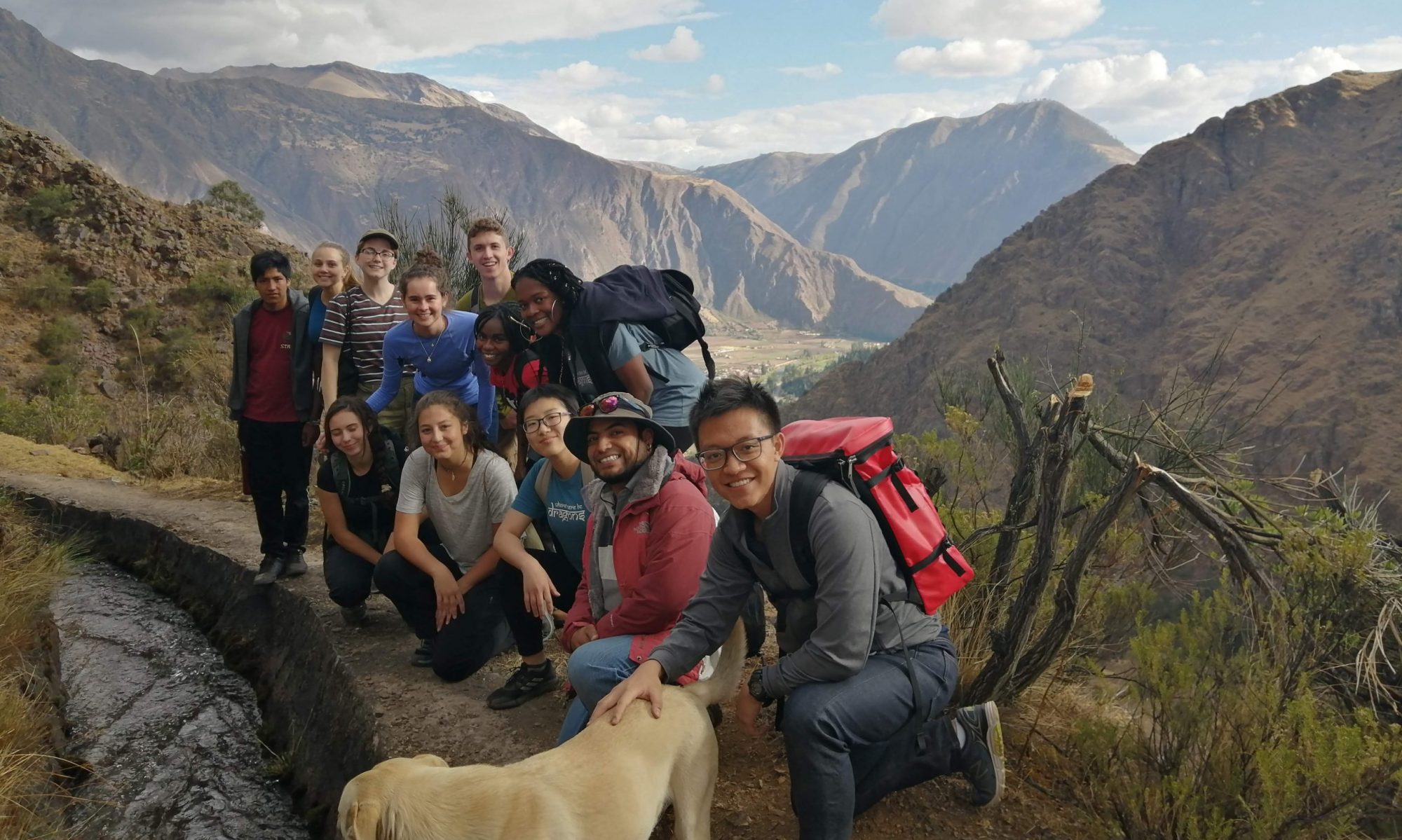By Mika Margalit

Hi from Dublin, Ireland! I arrived along with a couple of the other girls around 8am in Dublin, totaling an hour and a half of sleep on the red eye flight. Thankfully, It was a beautiful drive to our hostel- the lushness of the nature is visible from every vantage point of the city. I spent the past couple weeks leading up to this trip researching migration integration processes in Ireland. My interest in International Relations focuses on the experiences of migrants and how governments/societies implement sucsessful inegration services. After dropping our bags off in the hostel, we headed to Trinity College Dublin to meet with Professor Gizem Arikan ( Associate Professor from the Political Science)! I made contact with Professor Arikan a couple months ago after looking into different academics whose research focuses on migration studies. Much of her research focuses on underlying psychological mechanisms for social attitudes regarding immigration, democracy, etc. I was amazed by her ability to apply a political psychology framework to my research topic of refugee and immigrant integration. She discussed the divergences of treatment of economic migrants vs. asylum seekers through the framework of “in group” and “out group”. Most of the articles I read regarding immigration to Ireland did not take into account psychological frameworks that help explain barriers to successful integration. Our meeting with Professor Arikan expanded the scope of my topic to detail different lens to understand the process of integration.
After our interview and a much-needed meal, our group was running on basically zero sleep. Thus, we napped (which came back to hurt me as I could not fall asleep until 4:30am). After a great dinner at a recommended pizza place, we came back to the hostel and got ready for the next day, aka today.
Today, we continued our journey hearing from professors whose work centers around applying a gendered perspective to social issues in Ireland. Our first stop of the morning was to Maynooth University to meet with Dr. Camilla Fitzsimmons. Her work focuses on an intersectional approach to feminist studies, and Olivia was the one who made contact with her due to her experience in the abortion rights movement in Ireland. During our talk, we had the opportunity to discuss with her everything from the repeal of the 8th Amendment to the repeal of the marriage ban. My narrative will focus on stories of the integration of immigrant and refugee women. Dr. Fitzsimmons was a part of a team that recorded Muslim women’s experience in healthcare in Ireland; many of the women detailed rampant discrimination from the healthcare system. This conversation led to a discussion about perceived success of integration in Ireland versus the on-the-ground realities for migrant women. Professor Fitzsimmons mentioned the need to differentiate between economic migrants versus asylum seekers, as the experiences are incredibly different. Her involvement in research regarding the structural oppression of certain migrant communities has offered me more insight into underrepresented voices in Ireland. Also, Maynooth is basically Hogwarts with many paintings of religious figures.
Our last meeting of the day was back at Trinity College Dublin, this time with Professor Gillian Wylie and Professor Maja Halilovic-Pastuovic in the School of Religion, Theology, and Peace Studies. During this interview, I learned more from Professor Halilovic-Pastuovic about the integration of Bosnian refugees from former Yugoslavia during the late 90s. Housed at the Cherry Orchard Reception Centre, the Irish government applied a top down integration approach to this community. According to Professor Halilovic-Pastuovic, this approach was really harmful: when Bosnian refugees came, they were placed outside the city center, and taught the “Irish way of life.” It was additionally assumed that the entire community had “one” identity. Bosian refugees ended up revolting against this system, which separated them from the rest of Irish society and assumed singular cultural identity. This part of Irish history has offered me further perspective on handling bringing in migrants in Ireland, and I will use this story as an integral example of how Ireland has often fallen short to practice sucsessful integration processes.
After our interview, we finally got the chance to explore the beautiful city we will be staying in for the next week. It has been so incredible getting to see everything, from the different food shops to the sweater stores. We are heading out to dinner now, but I can not wait to hear from more academics and non-profits in the upcoming days. See you guys soon!
Mika
